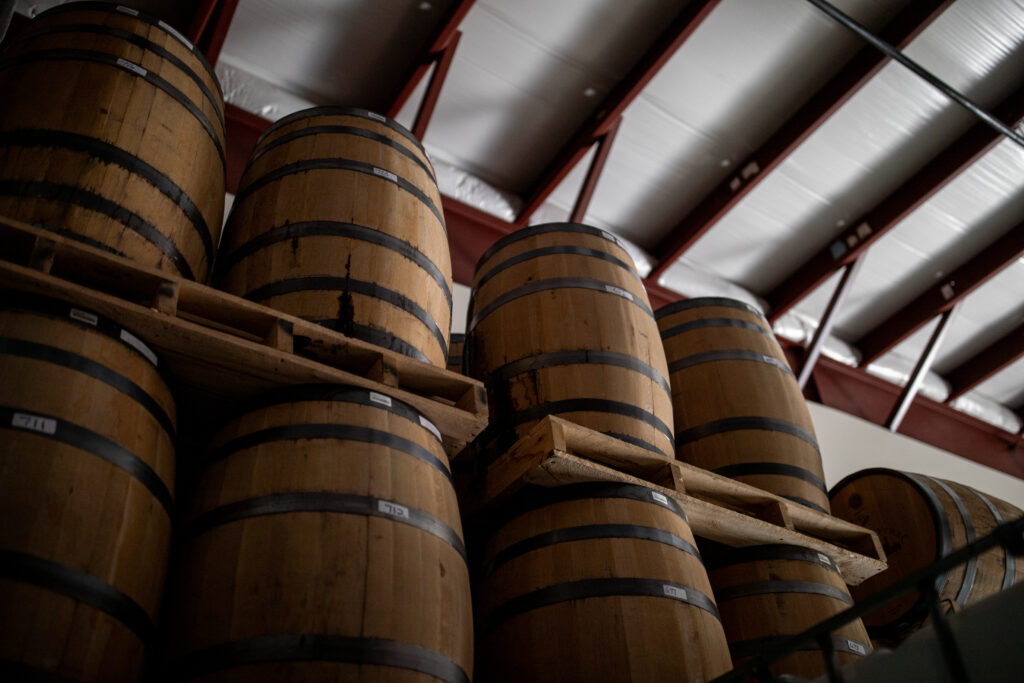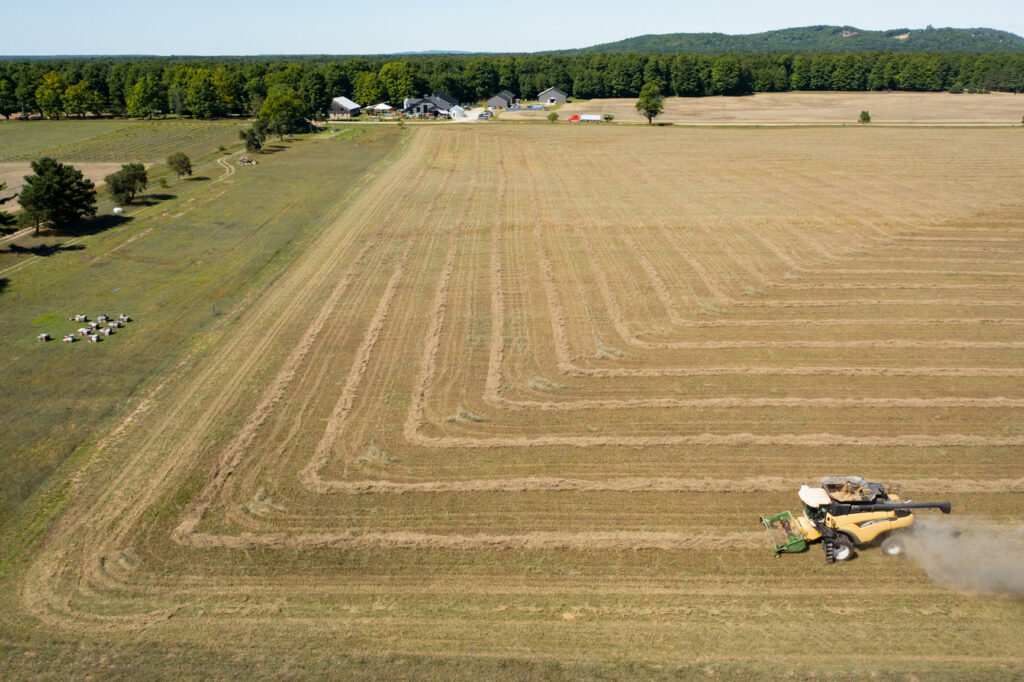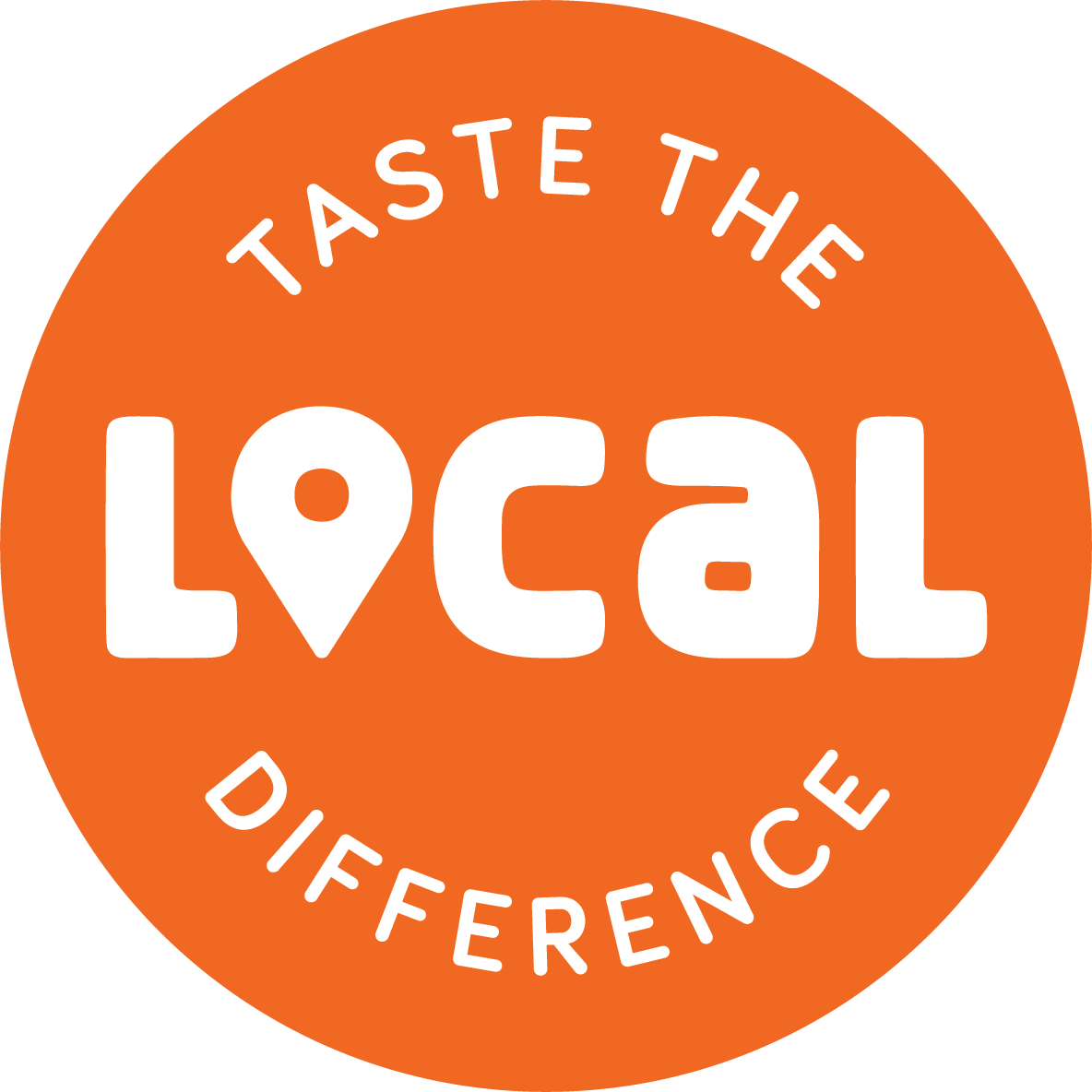This story was originally published in the 2023 Local Food Guide.
All Kent Rabish of Grand Traverse Distillery needs to source grain is a phone call. Up the road, Send Brothers Farm loads a large blue bin full of rye and makes the 20-minute truck drive into Traverse City. From there, the rye is loaded into a fermentation tank where it starts the process of creating the unique pepper spice of their Ole George line of whiskeys.
This is the way Grand Traverse Distillery has always made their products. “We’re a local company, and we want local products,” explains Rabish. Before a recent legislation change, this was not the most economically advantageous way to go. Then, PA (Public Act) 135 and the Qualified Distiller Program were put in place by Governor Gretchen Whitmer in September 2022. With significant reductions on state dues for distillers using 40% or more Michigan-grown grain in their distilled products, this allows for Rabish to continue making his 95% Michigan-sourced products, now at a profit that’s more sustainable.

“This reduction will help small distillers invest back into their businesses and communities, create jobs, and strengthen new markets for grain growers,” remarks Jenelle Jagmin of the Michigan Craft Beverage Council. She expects the 3 million pounds of Michigan-grown grain and fruit that program applicants reported using to increase with the implementation of the Qualified Distiller program.
At Detroit City Distillery (DCD), located in the historic Stroh’s ice cream factory, they choose to use Michigan agricultural products for the authenticity of their story. Founder and distiller J.P. Jerome attests that Detroiters can easily sniff out a false line. DCD occupies space in Eastern Market, a neighborhood steeped in the tradition of agricultural communities, and while there aren’t flowing wheat fields in this urban setting, their location still links to the broader farming network. These local relationships begin with Dexter Mill in Ann Arbor and include a prosperous growing contract with a farmer in Washtenaw County for cold-hardy grains like wheat and rye. DCD’s intentional sourcing extends to cocktail bar ingredients from the market, solidifying their status as a part of the region’s traditions.
When it comes to expression of place, Black Star Farms looks beyond grain, to the orchards of Northwest Michigan. Located among the rows of Balaton cherry trees in the Leelanau Peninsula, distiller Lee Lutes uses on-farm and local sourcing to create a “true expression of this place, flavors that we derive from this place.” Their line of eau de vie spirits (fruit brandies made from area cherries, apples, pears, and other local ingredients) are traditionally enjoyed as digestifs, but are also savored onsite in creative cocktails and even a famous fruit salad. But Lutes testifies that it’s equally about relationships as it is about a quality product. “We have believed and borne witness to the fact that what we represent up here cannot be replicated elsewhere. This region has a very unique expression of everything it grows. It’s why we stand tall to support farmland, to support agriculture.”

In Thompsonville, Iron Fish Distillery has taken the spirit of place and turned it into a destination. As the first farmstead distillery in Michigan, the road to their bonfires and glasses of whiskey takes you past fields of winter wheat and rye. In each sip of vodka and other spirits, drinkers can experience the flavor of the grain aroma imparted in the distilling process. Beyond what is grown onsite, cofounder Richard Anderson works with other grain-focused farms as far north as the Upper Peninsula. He explains that his ability to approach farmers as a farmer himself builds a unique sense of community in every bottle; not only does each bottle of their Mad Angler whiskey represent their Manistee County farming story, but also those in the Michigan farming fellowship.
And that’s the brass tacks of farm-to-bottle practices: with each purchase of a bottle of whiskey, consumers also purchase 2.5 pounds of grain or other products that started in the hands of a farmer. Now, with incentives to use more Michigan-grown products, farmers and distillers are rewarded for crafting truly local spirits that uplift community and support a sustainable economy.
